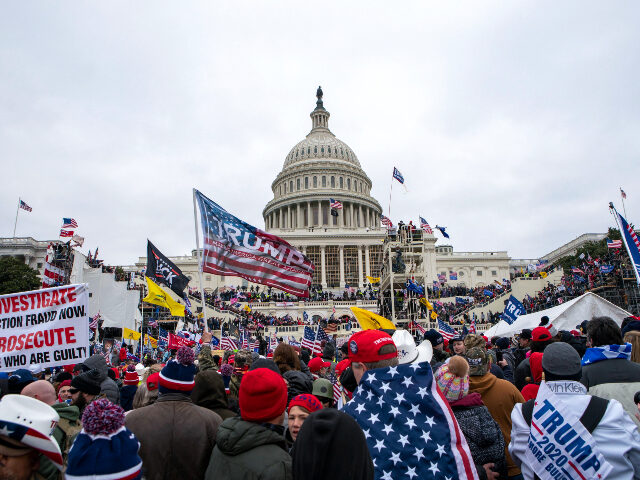House Judiciary Committee Chairman Jim Jordan (R-OH) issued a subpoena to Citibank on Thursday over concerns that the megabank worked with the FBI to collect Americans’ financial data without a warrant.
Jordan issued the subpoena after Citibank failed to comply with the committee’s request to provide documents surrounding Citibank’s cooperation with the FBI to provide the intelligence agency with Americans’ financial data surrounding the January 6 protests.
The letter details how current and former FBI agents have revealed to the committee how:
Bank of America (BoA) provided the FBI — voluntarily and without any legal process — with a list of individuals who made transactions in the Washington, D.C., metropolitan area with a BoA credit or debit card between January 5 and January 7, 2021. The Committee has also learned that individuals who had previously purchased a firearm with a BoA product were elevated to the top of that list, regardless of the time or place of the firearm purchase. Given this concerning testimony, the Committee has written to other major financial institutions, including Citibank, to determine whether those entities were involved in similar conduct.
Bank of America also reportedly provided the FBI with information about its customers who had made “ANY historical purchase” of a firearm, purchased a hotel, AirBnB, or airline travel within a given date range.
Now, documents obtained by the Judiciary Committee found that a Citibank representative worked with the FBI and the Financial Crimes Enforcement Network (FinCEN) to figure out how to obtain private financial records:
In particular, these documents indicate that a Citibank representative was included on emails and Zoom discussions organized by the FBI and the Financial Crimes Enforcement Network (FinCEN) focused on “identifying the best approach to information sharing, both strategic and operational,” in the wake of the events of January 6.These documents suggest that the executive branch was brainstorming informal methods — outside of legal process — for obtaining private customer information from financial institutions.
Jordan remarked, “Federal law enforcement’s use of back-channel discussions with financial institutions as a method to investigate and obtain private financial data of Americans is alarming.”
Massie, a member of the weaponization subcommittee, said during the subcommittee’s mid-May hearing that an FBI whistleblower testified that there was no geolocation fencing regarding the datamining of Americans’ purchasing of firearms:
Video Source: C-SPANRep. Dan Bishop (R-NC) said that BoA’s alleged turning over of Americans’ transactions amounts to “victimization at scale” of Americans:
Video Source: Rep. Dan Bishop / TwitterJordan teased during an interview with Just the News that “says that legislation is being introduced to stop these types of broad warrants saying, for example with “Bank of America, [the FBI] will have to get a warrant to get this information, [the Bank] can’t be just turning it over, there has to be a specific warrant, that is our system, that is what this country was founded on.”
A recent FBI audit found the agency had “insufficient justification” for two FISA searches relating to “January 6th capitol violence.”
Sean Moran is a policy reporter for Breitbart News. Follow him on Twitter @SeanMoran3.

COMMENTS
Please let us know if you're having issues with commenting.